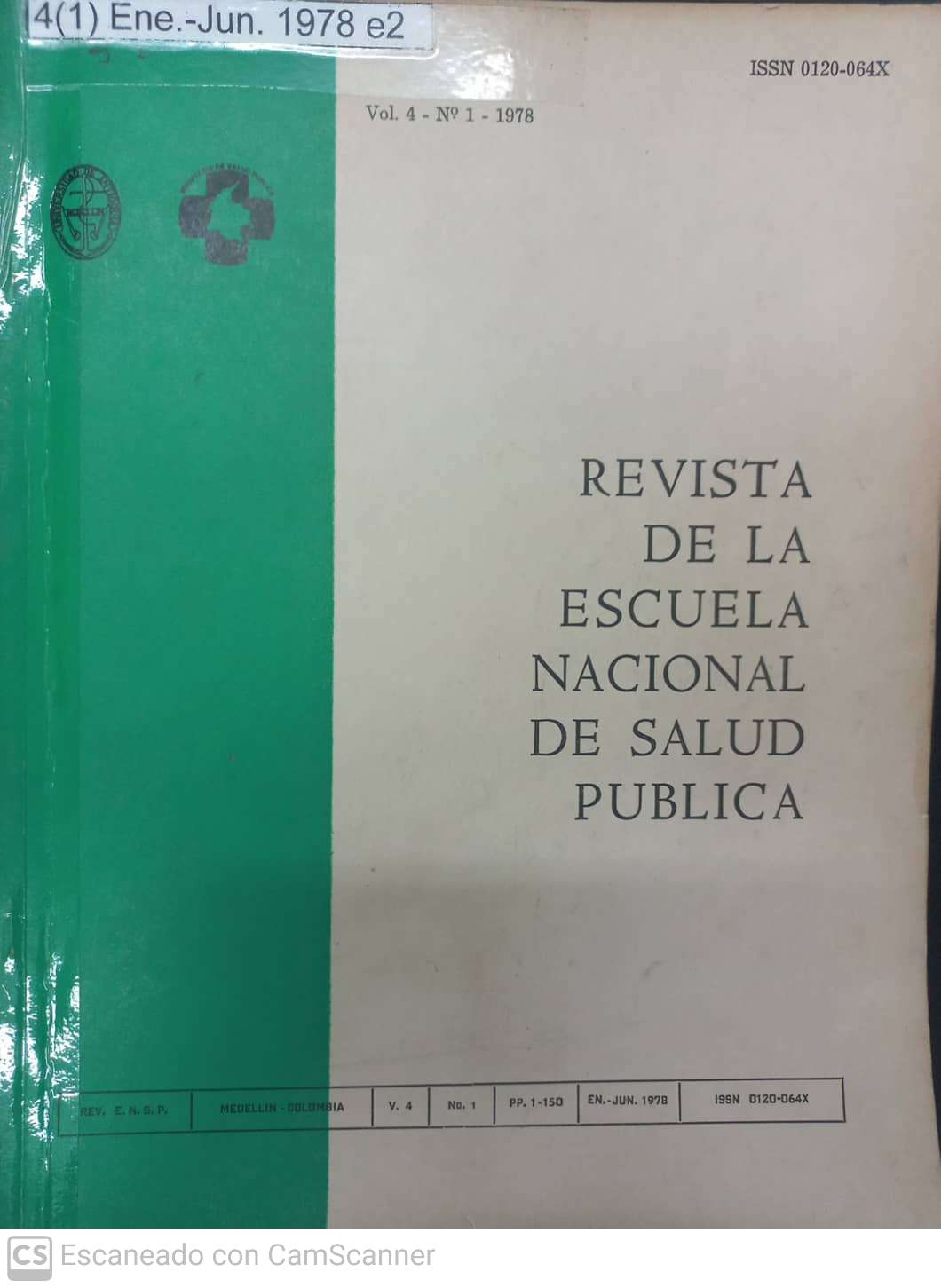LA PLANIFICACION DE LA SALUD COMO IDEOLOGIA
Abstract
The exercise for more than a decade of the discipline of Planning in the specific area of health, has prompted us to try to delve a little into the reasons that have determined its insufficient development and more importantly, the symptoms of the definitive crisis of this discipline, which already appear in the daily occurrence of the technocracy that directs the destinies of health in our continent under the devalued form of health programming.
Our initial hypothesis is simply that the process of Health Planning, conceived and based on the assumptions on which it was founded, which since the 1960s began to be known as Planning in Latin America, could only be reduced to a technocratic activity, without major consequences for the development of the region, for the particular development of the health sector and, worst of all, without significant consequences on the health status of the community.
An analysis of the many definitions of the discipline of planning that have been given since the Second World War, which corresponds precisely to the period in which the capitalist system began to take an interest in the subject, conditioned by the achievements obtained in this field by the socialist countries, can help us to glimpse the ideological and political assumptions on which the whole scaffolding of planning in our continent was built.
Downloads
References
AHUMADA, J. Necesidad de planificar y objetivos de la planificación. Cuadernos de la Sociedad Ve nezolana de Planificación (4-5): 18-28, 1966.
Ibid, p. 28.
CENTRO PANAMERICANO DE PLANIFICACION DE LA SALUD. Enfoques actuales acerca del proceso de la planificación de la salud. Santiago de Chile, 1975. p. 49.
Ibid., p. 58
5. Ibid., p. 59.
WRIGHT, M. La imaginación sociológica, México, Fondo de Cultura Económica, p. 91.
CENTRO PANAMERICANO DE PLANIFICACION DE LA SALUD. Formulación de políticas de salud. Santiago de Chile, 1975. p. 9-10.
Ibid. p. 6-12.
Downloads
Published
How to Cite
Issue
Section
License
Copyright (c) 2025 Eduardo Cano Gaviria

This work is licensed under a Creative Commons Attribution-NonCommercial-ShareAlike 4.0 International License.
The contents of the articles are the responsibility of the authors
The editorial committee has editorial independence from the National School of Public Health "Héctor Abad Gómez" of the University of Antioquia.
The editorial committee is not responsible for aspects related to copying, plagiarism or fraud that may appear in the articles published in it.
When you are going to reproduce and disclose photographs or personal data in printed or digital format, informed consent is required. Therefore, this requirement is required of the author at the time of receipt of the manuscript.
Authors are responsible for obtaining the necessary permissions to reproduce any material protected by reproduction rights.
The authors preserve the moral rights and assign the economic rights that will correspond to the University of Antioquia, to publish it, distribute electronic copies, include them in indexing services, directories or national and international databases in Open Access, under the Creative Commons Attribution license -Not Commercial-Share Equal 4.0 International Commercial (CC BY-NC-SA) which allows others to distribute, remix, retouch, and create from the work in a non-commercial way, as long as the respective credit and license are granted. new creations under the same conditions.
The authors will sign the declaration of transfer of economic rights to the University of Antioquia, after the acceptance of the manuscript.
The editorial committee reserves the right to reject the articles whose authors do not offer satisfactory explanations about the contribution of each author, to meet the criteria of authorship in the submission letter. All authors must meet the four criteria of authorship according to ICMJE: "a) .- That there is a substantial contribution to the conception or design of the article or to the acquisition, analysis or interpretation of the data. b) That they have participated in the design of the research work or in the critical review of its intellectual content. c) .- That has been intervened in the approval of the final version that will be published.d). That they have the capacity to respond to all aspects of the article in order to ensure that issues related to the accuracy or integrity of any part of the work are adequately investigated and resolved. "








 --
--  --
--
